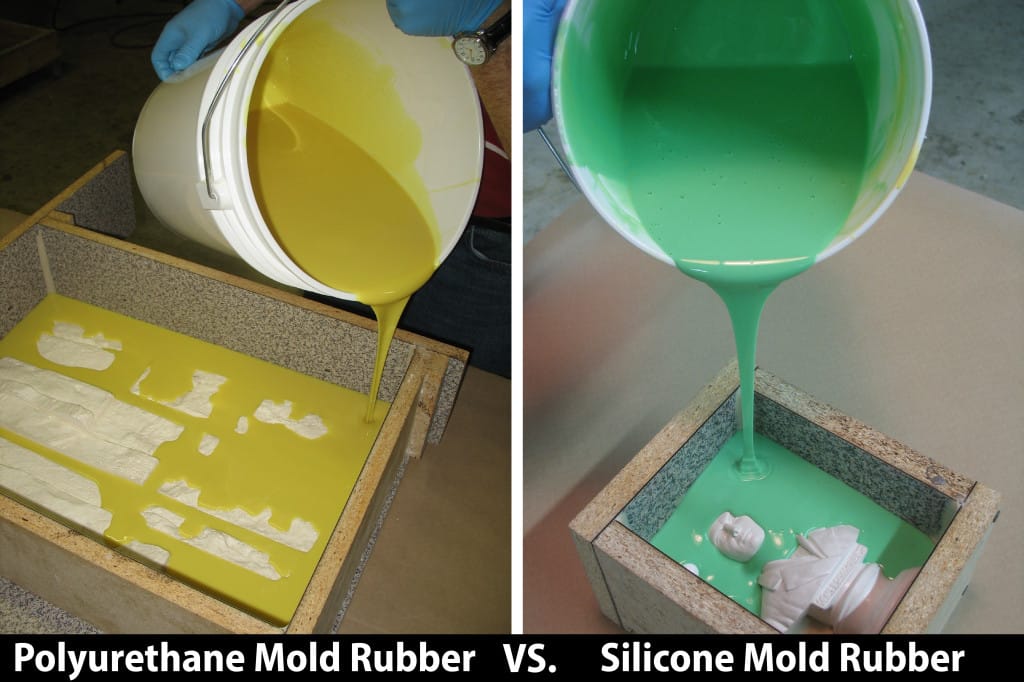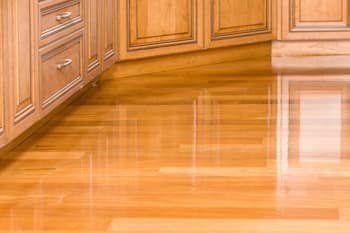Have you ever wondered if you can apply a protective layer of polyurethane to your vinyl flooring? This question often arises when homeowners want to enhance the durability and appearance of their flooring. While polyurethane is a popular choice for wood floors, its compatibility with vinyl isn’t as straightforward. This article delves into the complexities of using polyurethane on vinyl flooring, exploring the potential benefits, drawbacks, and factors to consider before embarking on this project.

Image: polytek.com
Understanding the nature of both polyurethane and vinyl is crucial to comprehending why their compatibility is a matter of debate. Polyurethane is a versatile coating known for its protective qualities. It creates a durable, water-resistant barrier, enhancing the lifespan of surfaces. Vinyl flooring, on the other hand, is a synthetic material prized for its affordability, ease of maintenance, and resistance to moisture. Whether these qualities seamlessly merge with polyurethane application is a key area of exploration.
The Polyurethane-Vinyl Compatibility Puzzle
The compatibility of polyurethane and vinyl flooring hinges on several factors. First, the type of vinyl flooring plays a significant role. Traditional sheet vinyl, known for its smooth, seamless surface, is generally not recommended for polyurethane application. The reason lies in the potential for adhesion issues. Polyurethane requires a porous surface to adhere properly. Sheet vinyl’s non-porous, smooth texture hinders the formation of a strong bond, leading to peeling or cracking of the polyurethane layer.
However, advancements in vinyl flooring technology have introduced new options like luxury vinyl tile (LVT) and luxury vinyl plank (LVP). These types mimic the appearance of natural materials like wood or stone, but with enhanced durability and water resistance. LVT and LVP often have a textured surface, making them more suitable for polyurethane application compared to traditional sheet vinyl. The textured surface provides better adhesion for the polyurethane, minimizing the risk of peeling or cracking.
Understanding Polyurethane’s Properties
Polyurethane is a versatile coating that comes in various formulations designed for specific applications. For wood floors, the primary polyurethane options are water-based and oil-based. Water-based polyurethanes are known for their faster drying time, low odor, and ease of cleanup. However, they may not offer the same level of durability as oil-based polyurethanes. Oil-based polyurethanes are more durable and resistant to scratches and scuffs, but they take longer to dry and have a stronger odor.
While water-based polyurethanes are generally considered safer for indoor use, it’s crucial to check the manufacturer’s recommendations before applying them to vinyl flooring. Some water-based polyurethanes may contain ingredients that can react negatively with vinyl, causing discoloration or damage. Therefore, always choose a polyurethane explicitly designed for vinyl flooring or consult with a flooring expert for guidance.
Potential Benefits of Applying Polyurethane
Applying polyurethane to compatible vinyl flooring can offer several potential benefits. These benefits primarily focus on enhancing the floor’s durability, appearance, and overall lifespan.

Image: cutefloor.com
Enhanced Durability
Polyurethane forms a protective barrier that can shield vinyl flooring from scratches, scuffs, and abrasions. This is particularly advantageous in high-traffic areas, such as kitchens, hallways, and entryways. Polyurethane’s protective layer reduces wear and tear, preserving the original appearance of the vinyl flooring for a longer time.
Increased Water Resistance
Polyurethane is known for its water-repellent properties. By applying a polyurethane layer, you can enhance the water resistance of vinyl flooring, making it more suitable for areas prone to spills or moisture, such as kitchens or bathrooms. This increased resistance can also prevent stains from penetrating the vinyl, making cleaning easier.
Improved Appearance
Polyurethane can revitalize the appearance of vinyl flooring, giving it a fresh, glossy finish. The polyurethane coating can hide scuff marks, scratches, and other imperfections, restoring the flooring to a more aesthetically pleasing state. Furthermore, polyurethane comes in various finishes, ranging from matte to high gloss, allowing you to customize the appearance of your vinyl flooring.
Important Considerations Before Applying Polyurethane
While the potential benefits are appealing, it is crucial to weigh the advantages against the potential drawbacks and considerations before applying polyurethane.
Compatibility
As previously mentioned, the type of vinyl flooring plays a crucial role in determining compatibility. Sheet vinyl is not generally recommended for polyurethane application. LVT and LVP, however, are more likely to be compatible due to their textured surface, offering better adhesion. Always confirm compatibility with the flooring manufacturer or a flooring professional.
Application Process
Applying polyurethane to vinyl flooring requires a specific and meticulous process. The surface must be thoroughly cleaned and free of any debris or contaminants. Proper preparation ensures the polyurethane adheres effectively, preventing peeling or cracking. If you are not confident in your ability to apply polyurethane correctly, seeking professional assistance is advisable. An experienced contractor can ensure a smooth, even application, maximizing the benefits of the protective coating.
Potential Drawbacks
While polyurethane can enhance the durability and appearance of compatible vinyl flooring, it’s important to be aware of potential drawbacks:
- Yellowing: Some polyurethanes, particularly older formulations, can yellow over time, especially when exposed to direct sunlight. This yellowing can affect the aesthetic appeal of the flooring.
- Slippery surface: Polyurethane can make the floor surface more slippery. This could be a safety concern in areas with high foot traffic or for individuals with mobility issues.
- Cost: Applying polyurethane can add to the overall cost of flooring installation. The cost of polyurethane itself, along with the potential need for professional application, can increase the overall expense.
- Maintenance: While polyurethane adds a protective layer, it still requires regular maintenance. Cleaning and periodic re-coating are essential to maintain the benefits of the polyurethane.
Alternatives to Polyurethane
If you’re looking for alternative ways to protect and enhance your vinyl flooring, several options are available. Consider these alternatives to polyurethane:
Vinyl Flooring Sealant
Vinyl flooring sealant is specifically designed for vinyl surfaces. It forms a protective barrier that enhances durability and water resistance similar to polyurethane. Sealants are typically easier to apply than polyurethane, requiring fewer coats for effective protection. However, they may not offer the same level of gloss or durability as polyurethane.
Vinyl Floor Wax
Vinyl floor wax is a traditional method for adding a protective layer and shine to vinyl flooring. Wax provides a smooth, glossy finish, enhancing the appearance of the vinyl. However, wax tends to be less durable than polyurethane or sealant, requiring more frequent applications. Wax can also be difficult to remove entirely from the surface.
Vinyl Floor Polish
Vinyl floor polish is a liquid product that cleans and protects vinyl flooring. It provides a glossy finish, but it’s primarily designed for maintenance rather than creating a durable protective barrier. Polish may need to be applied more frequently than other options to maintain the desired protection and finish.
Can You Use Polyurethane On Vinyl Flooring
Conclusion
Whether or not to apply polyurethane to your vinyl flooring depends on several factors, including the type of vinyl, your budget, and your desired level of protection. While the potential benefits, such as enhanced durability and appearance, are appealing, it’s essential to carefully consider the drawbacks and potential issues. Remember, always consult with a flooring professional or review the flooring manufacturer’s recommendations before deciding whether polyurethane is the right choice for your vinyl flooring. With careful planning and research, you can make an informed decision that meets your needs and budget, ensuring your vinyl flooring remains beautiful and functional for years to come.





